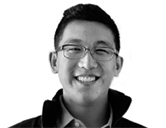
DAVID GAO
Yet, the epidemic of gun violence has continued to haunt the nation. The problem in the United States is just as bad as the news makes it out to be; worldwide, we are the only developed country to be in the top 20 for firearm-related deaths (#11 in 2017).
Although it took tragic incidents like Sandy Hook and Marjory Stoneman Douglas High School, increased attention has been paid to gun policy. National movements like #BlackLivesMatter and March For Our Lives and local movements like Don’t Shoot and Peoria Community Against Violence have gained momentum. People from federal congressman to high schoolers have become involved in the discussion.
Gun violence is as much a public health issue as HIV, alcohol and tobacco use. Unfortunately, America’s history of gun policy hasn’t helped: in 1996, the U.S. passed a bill preventing the Centers for Disease Control and Prevention from using public funds to research gun control (which may have shown a correlation in decreasing deaths, and therefore, promoting gun control). Without research into its cause, gun violence has stayed the same or increased every year since 2000. Congress has recently funded institutions that report such statistics and passed a bill banning modifications that turn semi-automatics into automatics. But this change is too slow, and more needs to be done.
That is where healthcare professionals can come in. Healthcare workers hold a special place of trust with the American public: in a 2017 Gallup poll on America’s most trusted professions, medical doctors ranked fourth behind nurses, military officers and grade school teachers. Trust in Congress meanwhile was nearly dead last, ranking 20 out of the 22 professions offered. Perhaps if physicians were in a publicly elected position, however, they could mediate these two extremes, solidify public trust and make the timely change needed in pressing issues such as gun violence.
So why don’t physicians participate more often in policymaking discussions? The probable reason is the two professions’ tense relationships: doctors frequently discount the opinions of non-expert politicians who try to make change in healthcare, while policymakers like to focus on issues like reducing physician pay and altering health plans to make physicians see fewer patients and complete more paperwork. That is why physicians, rather than joining a group of policymakers, became policymakers for themselves. The largest such physician advocacy group, the American Medical Association (AMA), only recently took a stance on gun control, calling for increasing the legal age of ownership to 21, increasing ownership regulations and legalizing court-mandated removal of at-home guns when appropriate.
While the AMA has changed U.S. policy in the past (they were responsible for banning smoking on airplanes), change can start earlier, like in our own medical student education. Besides the medical knowledge needed to handle acute cases of gunshot wounds, we could also be taught gun control as a public health issue, recognizing patients who may be dangerous to others, and most importantly, the steps needed to participate in physician advocacy. Both the University of Texas Medical School and Washington University School of Medicine in St. Louis have already created lessons integrated into their pre-clinical and clinical years.
Hopefully, this change can spread to other schools. While we do not have such curricula yet, I am hopeful that UICOMP will identify the local expertise and political willpower to institute this addition to our education. And that eventually, as my peers and I enter into our professional careers, some of us will also take the political stances necessary to improve health for all.
David Gao is a first-year medical student at the University of Illinois College of Medicine at Peoria.
